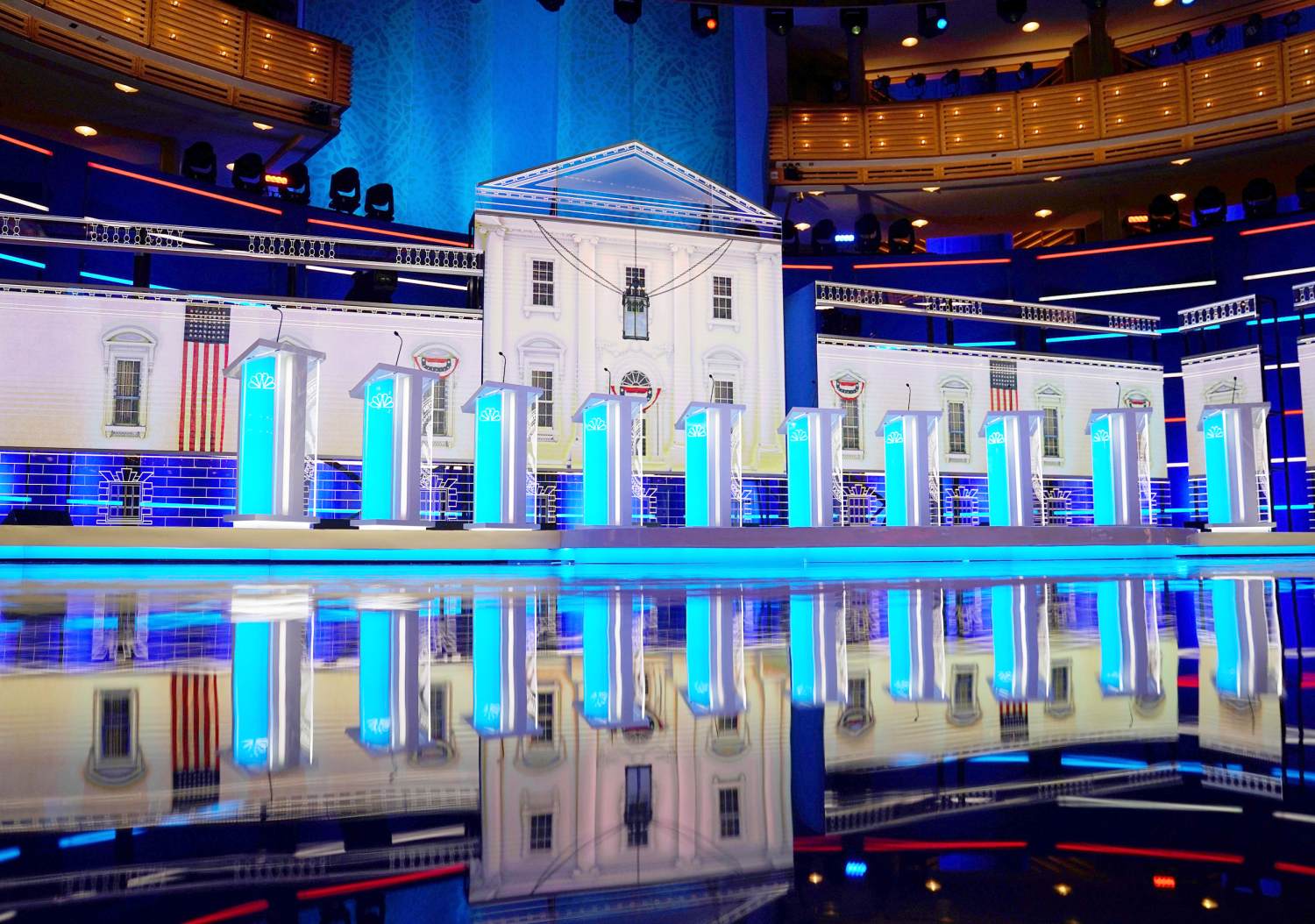As we reported previously, with tighter guidelines required for candidate participation in the September Democratic debate on ABC, only 8 candidates have, so far, qualified to be on stage. Campaigns have until August 28 to produce the needed numbers in terms of fundraising and polling support to qualify for a spot.
However, in a somewhat contradictory move, the Democratic National Committee (DNC) has said that any campaign which fails to qualify for the September debate is still eligible to qualify for the October debate, the details of which or particular date is still unknown.
Politico explains that a memo, sent to campaigns earlier this week, offers some hope for candidates like Hawaii Rep. Tulsi Gabbard, who had a breakout performance in July, to have more time in clawing her way back to the debate stage if she misses it in September:
The DNC memo sets the deadline to reach 130,000 donors and score at 2 percent in four polls at two weeks before the October debate and starts the qualification period on June 28, the same day qualification for the September debate began. Effectively, this means all candidates who qualify for the September debate are automatically in the October debate, unless they drop out of the race. And any candidate who misses the September debate has more time to receive new donations or score 2 percent in the polls.
How much extra time will there be? No date was given for the fourth debate in the memo, but even an early October date would add about three weeks to the qualification period ending in late August.
Extending the September criteria to the October debate instead of setting new parameters could allow struggling candidates who missed the first fall debate to stay in the race for an extra few weeks to try to make it onstage in latter fall debate.
The rules are getting murky, and it’s odd to have a debate stage in September which is designed to shrink the field, only to turn around in October and then expand the field once again. This is reminiscent of the Republican debates in 2016 where candidates who missed the polling threshold were stricken down to the “kids table” undercard debate. Only one candidate, Carly Fiorina, managed to lift herself up from the undercard into the primetime broadcast, but her candidacy didn’t last long after that.
As it stands now, it looks like the September debate will eventually end up with 10 candidates on stage:
Just eight candidates have qualified for the two fall debates thus far, according to a POLITICO analysis: Joe Biden, Cory Booker, Pete Buttigieg, Kamala Harris, Amy Klobuchar, Beto O’Rourke, Bernie Sanders and Elizabeth Warren.
Two other candidates — Julián Castro and Andrew Yang — are on track to qualify for both debates. Both Castro and Yang have already exceeded the donor threshold — which also requires candidates to have 400 donors a piece in 20 states — and need to score 2 percent in just one more poll before the August deadline.
Let’s assume Castro and Yang make it to the September stage, a move which automatically qualifies them for the October stage. That would mean adding even one more candidate would push the total number to 11 qualified candidates, an odd number for a debate organizer to deal with.
Even ten candidates on stage is a pseudo-nightmare for viewers and the candidates themselves. Their time is often cut short, their answers must be concise and they risk losing a lot of time being interrupted or not getting their point across.
If 11 candidates qualify for the October debate, does that mean the debate organizer would split the field over two nights or simply stick another podium on the stage? We don’t know the answers to that question yet since we also don’t know which network has been selected to host the debate in October.
It seemed that originally the goal was to shrink the field by tightening the requirements every couple of months. This rule clarification changes the dynamic and keeps the door open for the campaigns not ready to throw in the towel after September.
According to NBC News, Gabbard, among others, are working overtime right now to try and secure another debate spot:
Gabbard sent her supporters an email on Tuesday that asked them to be sure to answer any phone calls from an unknown number, in case it’s a pollster calling. And she directed them to sign up for YouGov’s surveys in the hope that they get selected to participate in one of the organization’s surveys, since CBS News is partnering with the organization for its polling.
Eight-in-10 Democrats and Democratic-leaning voters said they watched last week’s debate in Detroit or closely followed media coverage of it afterward, according to a new Quinnipiac national survey.
Democratic primary voters are indeed watching the debates, as one would expect. They’re also forming opinions and views on candidates as to how they perform under the spotlight and how they perform under pressure. For candidates polling in the basement with zero or one percent, being left off the stage is a death knell for their campaign.
However, with the DNC rule clarification for October, a handful of campaigns still have hope that they can mount an effort to build up a little more support and still appear on stage under the national spotlight, at least once more.
Donate Now to Support Election Central
- Help defend independent journalism
- Directly support this website and our efforts
